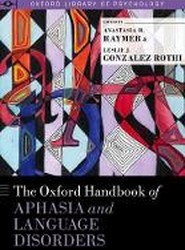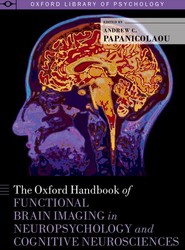(To see other currencies, click on price)
MORE ABOUT THIS BOOK
Main description:
Postmaterial spiritual psychology posits that consciousness can contribute to the unfolding of material events and that the human brain can detect broad, non-material communications. In this regard, this emerging field of postmaterial psychology marks a stark departure from psychology's traditional assumptions about materialism, making this text particularly attractive to the current generation of students in psychology and related health and wellness disciplines.
The Oxford Handbook of Psychology and Spirituality codifies the leading empirical evidence in the support and application of postmaterial psychological science. Sections in this volume include:
- personality and social psychology factors and implications
- spiritual development and culture
- spiritual dialogue, prayer, and intention in Western mental health
- Eastern traditions and psychology
- physical health and spirituality
- positive psychology
- scientific advances and applications related to spiritual psychology
With chapters from leading scholars in psychology, medicine, physics, and biology, The Oxford Handbook of Psychology and Spirituality is an interdisciplinary reference for a rapidly emerging approach to contemporary science. This overarching work provides both a foundation and a roadmap for what is truly a new ideological age.
Contents:
Introduction by Lisa J. Miller ; Part One: Epistemological and Ontological Assumptions in History and Culture ; 1. History and Current State of Research on Psychology of Religion ; Ralph W. Hood Jr. ; 2. Theoretical and Epistemological Foundations ; James M. Nelson and Brent Slife ; 3. Parameters and Limitations of Current Conceptualizations ; Fraser N. Watts ; 4. Progress in Physics and Psychological Science Affects the Psychology of Religion and Spirituality ; Everett L. Worthington Jr. ; 5. Complementarities in Physics and Psychology ; C. Edward Richards ; Part Two: Personality and Social Psychology: Universalism, Absolutism, and Relativism ; 6. Personality, Spirituality, and Religion ; Eric D. Rose and Julie J. Exline ; 7. Overview and Development of a Trait-Based Measure of Numinous Constructs: the Assessment of Spirituality and Religious Sentiments (ASPIRES) Scale ; Ralph L. Piedmont ; 8. Good and Evil in Religion: The Interpersonal Context ; Christopher T. Burris and John K. Rempel ; 9. Religion, Altruism, and Prosocial Behavior: Conceptual and Empirical Approaches ; Elizabeth Midlarsky, Anthony S. J. Mullin, and Samuel H. Barkin ; Part Three: Spiritual Development, Family, and Culture ; 10. Spiritual Development During Childhood and Adolescence ; Chris J. Boyatzis ; 11. Questions Left Unaddressed by Religious Familism: Is Spirituality Relevant to Non-traditional Families? ; Annette Mahoney and Elizabeth J. Krumrei ; 12. Motherhood and Female Faith Development: Feminine Tapestry of Religion, Spirituality, Creativity, and Intuition ; Carole A. Rayburn ; 13. Colored Spirituality: The Centrality of Spirit among Ethnic Minorities ; Lillian Comas-Diaz ; 14. Models of Spiritual Development ; Harris Friedman, Stanley Krippner, Linda Riebel, and Chad Johnson l ; Part Four: Spiritual Dialogue, Prayer and Intention in Mental Health: Western Traditions Moving Forward ; 15. Spiritually-Sensitive Psychotherapy: An Impending Paradigm Shift in Theory and Practice ; Len Sperry ; 16. Honoring Religious Diversity and Universal Spirituality in Psychotherapy ; P. Scott Richards ; 17. Counseling and Psychotherapy within and across Faith Traditions ; Mark R. McMinn, Kimberly N. Snow, and Justin J. Orton ; 18. Psychoanalysis, Psi Phenomena, and Spiritual Space: Common Ground ; Ruth Rosenbaum ; 19. Spiritual Aspects of Jungian Analytical Psychology: Individuation; Jung's Psychological Equivalent of a Spiritual Journey ; Joseph P. Wagenseller ; Part Five: Mind, Awareness, and Spirituality in Mental Health: Eastern Traditions Engage Psychology ; 20. Contemplative Traditions and Meditation ; Brendan D. Kelly ; 21. Translation of Eastern Meditative Disciplines into Western Psychotherapy ; Randye J. Semple and Sean P. Hatt ; 22. Eastern Traditions, Consciousness, and Spirituality ; Kartikeya C. Patel ; Part Six: Physical Health, Prayer, and Spirituality ; 23. Spirituality, Science, and the Human Body ; Wayne B. Jonas, Matt Fritts, Gail Christopher, Maeba Jonas, and Susan Jonas ; 24. Spirituality, Emotions, and Physical Health ; Crystal L. Park and Jeanne M. Slattery ; 25. Spirituality, Religion, and Psychological Counseling ; Thomas G. Plante ; 26. Spirituality and Recovery from Serious Mental Problems ; David Lukoff ; Part Seven: Positive Psychology and Spirituality ; 27. Positive Psychology and Spirituality: A Virtue-informed Approach to Well-Being ; Joseph W. Ciarrocchi ; 28. Spirituality, Resilience, and Positive Emotions ; Bruce W. Smith, J. Alexis Ortiz, Kathryn T. Wiggins, Jennifer F. Bernard, and Jeanne Dalen ; 29. Constructing the Connection between Spirituality, Work, and Family ; Lee Joyce Richmond ; 30. Spirituality and Positive Youth Development ; Peter L. Benson, Eugene C. Roehlkepartain, and Peter C. Scales l ; Part Eight: The Brain and Spiritual Experience ; 31. Transformation of Brain Structure and Spiritual Experience ; Andrew B. Newberg ; 32. Neuroimaging and Spiritual Practice ; Mario Beauregard ; 33. The Psychology of Near-Death Experiences and Spirituality ; Bruce Greyson ; Part Nine: Postmaterial Spiritual Psychology: Scientific Advances in a Spiritual Ontology for Psychology ; 34. Nonlocality, Intention, and Observer Effects in Healing Studies: Laying a Foundation for the Future ; Stephan Schwartz and Larry Dossey ; 35. Spirituality, Connection, and Healing with Intent: Reflections on Cancer Experiments on Laboratory Mice ; William F. Bengston ; 36. Knowledge, Intention, and Matter ; William A. Tiller ; 37. Consciousness, Spirituality, and Post-Materialist Science: An Empirical and Experiential Approach ; Gary E. Schwartz ; 38. A Post-Materialist Human Science and Its Implications for Spiritual Activism ; Amit Goswami ; Part Ten: Conclusion ; 39. Conclusion ; Lisa J. Miller
PRODUCT DETAILS
Publisher: Oxford University Press (Oxford University Press Inc)
Publication date: November, 2013
Pages: 656
Weight: 1138g
Availability: Available
Subcategories: Psychology
Publisher recommends
Lisa J. Miller
From the same series
Thomas H. Ollendick
Robert F. Krueger
Michaela A. Swales
Pascal Belin
Shaun Gallagher
Kieran C.R. Fox
W. Stewart Agras
Shane J. Lopez
Leslie J. Gonzalez Rothi
Maryanne L. Fisher
Jane Edwards
Seth J. Schwartz
Stephen G. Harkins
Andrew C. Papanicolaou
Robert J. DeRubeis
Thomas A. Widiger
Michael Waldmann
Matthew K. Nock
Stephen M. Kosslyn
Stephen M. Kosslyn
Phillip M. Kleespies
Kenneth J. Sher
Kieran T. Sullivan
Kenneth J. Sher
Kenneth J. Sher
Amy Wenzel
Thomas J. Dishion
Jane Edwards
Marc Marschark
Arthur M. Nezu
Robert Turner
Jeffrey Jensen Arnett
Stephen P. Hinshaw
Turhan Canli
Ken Laidlaw
Ying-yi Hong
Michael W. O'Hara
Nichola Rumsey
Matthew K. Nock
David H. Barlow
Susan David
Gail Steketee
Howard S. Friedman
Julie Simner
Thomas Widiger
Michael L. Wehmeyer
Simon Liversedge
Jonathan S. Comer
Jeffry A. Simpson
Marjorie Taylor
Donald H. Saklofske
William Ming Liu
Judy Illes
Elizabeth Vera
Susan D. Clayton
Thomas Widiger
Lisa J. Miller
Paul Kennedy
Suzanne Segerstrom
Edmund O. Acevedo
Valerie Maholmes, Ph.D., CAS
J. Gayle Beck
Richard M. Ryan
Charles M. Morin
Janice H. Laurence
Michael Nash
Elizabeth M. Altmaier
Shane J. Lopez
Jacob A. Burack
Jon E Grant
Robert K. Conyne
Simon Liversedge
Judy Illes
Peter E. Nathan
David H. Barlow
Susan Folkman
W. Stewart Agras
Christopher Plack
Paul Fuchs
James N Butcher
Martin M. Antony
Ulf Ziemann































































































